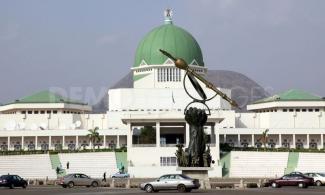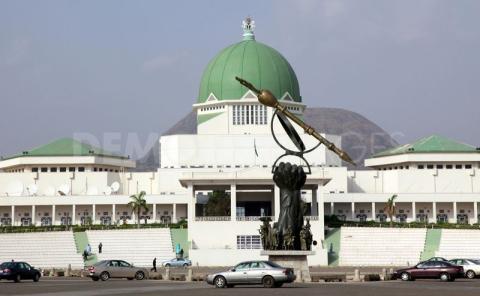
A pro-democracy body, the Civil Legislative Advocacy Centre (CISLAC), has called for an independent audit of all previous constituency project allocations to members of the National Assembly (NASS) to determine to make sure spending practices are held accountable to the Nigerian people. The statement was made in a press released signed by Auwal Musa Ibrahim, CISLAC’s Executive Director.
According to the statement, the recent revelations by the former Chairman of the Appropriations Committee for the House of Representatives, Abdulmumin Jibrin, amounts to a further proof of the waste that has characterized the federal legislature over the years.
“We note that such practices have been going on for a long time as the NASS has been known, in the past to, in addition to padding the budget at the point of defence, make dubious allocations for constituency projects as well as have demanded and received inducement for sectoral allocations,” CISLAC said.
CISLAC added that federal legislators are known to have received or demanded gratifications in exchange for ministerial confirmation and extorted money from Ministries Departments and Agencies (MDAs) under the guise of oversight functions, stating that the current scandal endangers the integrity of the National Assembly.
“The reference to occupants as Honourable and Distinguished is gradually becoming a mere appellation that is stripped of the attendant respect,” CISLAC noted.
It expressed disappointment at the revelations and allegations made by Mr. Jibrin, describing them as an afterthought and provoked by the fact that he has lost out from benefiting from the process.
CISLAC noted that Mr. Jibrin strongly defended the House when the allegations of budget padding were first made. This, they added, places a big question mark on his credibility and loyalty to the Nigerian people.
The pro-democracy body said it finds the culture of constituency projects needless, arguing that it is at variance with the principle of separation of powers. CISLAC further argued that the practice of constituency projects is a channel for legislative corruption and distraction, which are avoidable by simply strengthening relevant institutions and systems for project implementation and service delivery.
CISLAC also requested the Independent Corrupt Practices Commission (ICPC) and the Code of Conduct Bureau (CCB) to undertake further inquest into the allegations, with a view to getting to the root of the matter and punish culprits where necessary. It expressed doubts that the National Assembly can find the moral courage to investigate itself and sanction erring members.
To forestall a repeat of such financial scandals in the federal legislature, CISLAC recommended the introduction of a framework for constituency accountability for public participation and cooperation with the executive arm to establish a participatory budgetary process based on actual needs assessment and citizens’ input.
“We call on political parties to reorganize and commence a process for leadership recruitment and internal party democracy that will facilitate the emergence of persons with integrity, patriotism and a mind-set of service, who will be adequately prepared to occupy leadership positions and lead Nigeria to meet the aspirations of her people and occupy her place among the comity of nations,” the body said.
The body recalled that despite repeated promises and commitments by Senate President Bukola Saraki, who is the Chairman of the National Assembly, to disclose the details of the budget of the legislature, Nigerians are yet to have access to this information.
“We find it ironic that elected representatives are unwilling to make information on how funds appropriated from tax payers’ money are allocated and spent, are made available to the citizens who elected them into office.
“We note that these events are a product of failed recruitment process and flawed party processes that have resulted in the emergence of leaders who are unprepared to undertake the challenging art of governance in a diverse environment,” it submitted.
CISLAC lamented that fraudulent occurrences in the budget processes have been made possible by the country’s abandonment of the practice of developing viable plans to underpin the budget process and the zero-budget approach. It also blamed the situation on the ineffectiveness of the Medium Term Economic Framework (MTEF) process envisaged under the Fiscal Responsibility Act 2007. This, it noted, has created avenues for corrupt practices.
“We call on the National Assembly to take advantage of this latest revelation to undertake self-introspection and urgently rise up to cleanse itself and make efforts to redeem its image and reputation which is presently in its lowest ebb.
“We also call on them to revisit the issue of having members adhere to the Code of Conduct for members as a means of self-regulation of behaviour within their ranks,” CISLAC concluded.
